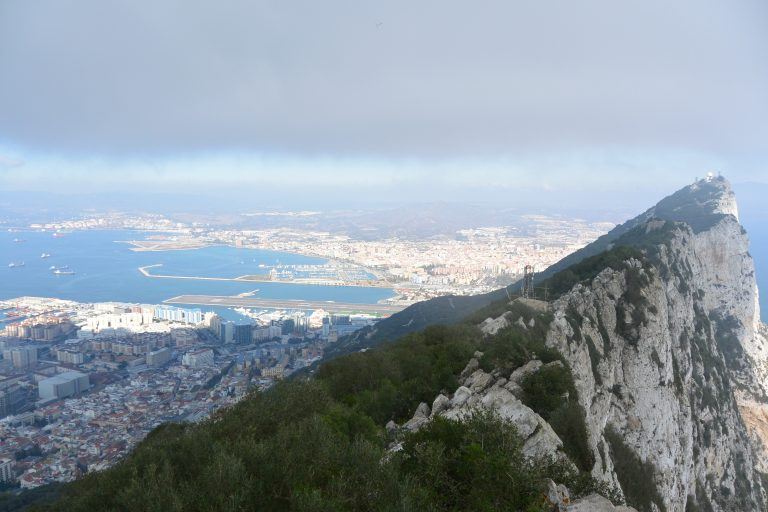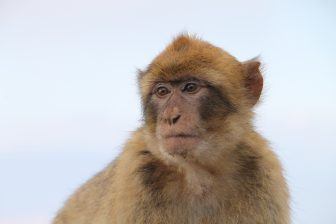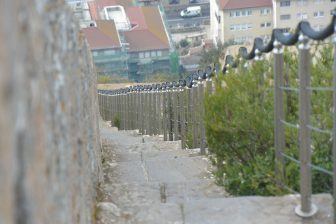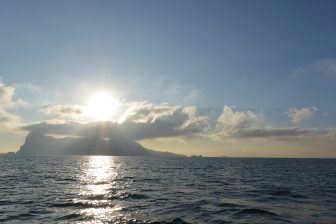
After watching dolphins in the sea off Gibraltar, we went up the mountain by the cable car.
This is a rocky mountain called The Rock and is famous for the monkeys that live there.
First we saw two monkeys at the observatory where we got of the cable car.
Their colour was pale and they do not have tails.
That reminded me of the cats without tails in Isle of Man, which is another tax haven of the UK.
These monkeys are called Barbary macaques or Barbary apes and their origin is in the north Africa.
Those ones in Gibraltar were considered to be the offspring of the pets of Moors who used to rule this area in Iberia.
According to the booklet we got locally, there are 230-240 monkeys currently and they are the only wild monkeys in Europe.
On the internet I found out that the males bring up their children.
We wanted to see more monkeys, so although we bought the return tickets of the cable car, we decided to walk down the Rock.
Soon after we started, we found a lot of them where they were fed.
The booklet says that they feed monkeys with healthy fruits and vegetables so that they do not come down to the town to look for foods.
Maybe because of that, incidents of monkeys snatching people’s things seemed getting rarer, though we saw some warning signs.
In India I saw a monkey swooped up a pair of spectacles.

We had to climb down the steep staircase along the wall on and on and on.
I was very scared because the stone steps were slippery though there was the railing and the monkey were watching us and there was their excrement.
After the long stairs, we walked down the road, but this was very long, too and occasionally we had to go up the road for some reason.
It seemed that we did a hike in the Natural Reserve area without realising it.
By the way, regarding the monkeys there is a famous legend.
They believe that when the monkeys disappear from the Rock, it is the end of the British rule over Gibraltar.
So during WW2, Churchill ordered the military to take care of the monkeys and if necessary, to import them.
According to the booklet, the military authorities looked after the monkeys until 1994 and then, the government took over their care.
[ Nov.2016 ]



